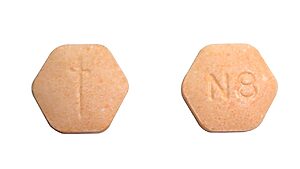For those struggling with addiction, finding effective therapeutic approaches is crucial for lasting recovery. Dialectical Behavior Therapy (DBT) has emerged as a powerful tool in rehabilitation settings, offering practical skills and strategies for managing addiction and underlying emotional challenges. Originally developed by psychologist Marsha Linehan in the late 1980s, DBT has evolved from its roots in Cognitive Behavioral Therapy to become a comprehensive treatment framework that addresses both addiction and the emotional dysregulation often driving substance use.
At Texas Recovery Center, we understand that overcoming addiction requires a multifaceted approach. Our DBT program in Texas provides clients with essential tools for managing difficult emotions, cravings, and thoughts related to substance use while building a foundation for lasting recovery.
Core Components of DBT in Addiction Treatment
The DBT framework contains five essential functions that work together to support recovery:
- Motivation Enhancement: DBT focuses on increasing a patient’s engagement in treatment and maintaining recovery momentum outside structured rehab settings.
- Capability Enhancement: Our program helps patients recognize and utilize their innate strengths and abilities to foster balanced, mindful recovery.
- Skill Development: Patients learn practical coping strategies for managing triggers and emotional challenges, with a strong emphasis on mindfulness and acceptance-based techniques.
- Environmental Structuring: We create supportive therapeutic environments that facilitate healing while helping patients identify and remove influences that could impede recovery.
- Therapist Capability Enhancement: Our DBT therapists maintain current knowledge and continuously strengthen their skills to provide optimal support for positive change.
Benefits of DBT in Addiction Recovery
DBT offers several key advantages for individuals seeking recovery:
- Validates emotional struggles while maintaining focus on developing healthier coping mechanisms
- Identifies and addresses potential barriers to treatment progress
- Prioritizes safety for patients experiencing significant emotional distress
- Develops healthy boundaries and positive relationship skills
- Teaches practical mindfulness techniques for managing triggers and stress
The Texas Recovery Center Approach to DBT
Our DBT program sets itself apart through:
- Individualized treatment planning
- Team-based therapeutic approach
- Development of strong therapeutic relationships
- Recognition of addiction’s impact on family systems
- Integration with comprehensive treatment plans
How DBT Targets Recovery Behaviors
As treatment progresses, our DBT program addresses several key areas:
- Managing withdrawal symptoms effectively
- Reducing cravings and relapse triggers
- Identifying and removing environmental risk factors
- Addressing thoughts and behaviors that enable substance use
- Building positive support systems and behaviors that reinforce sobriety
Getting Started with DBT at Texas Recovery Center
Our range of therapeutic approaches, including DBT, provides individuals with the precise level of care needed for successful recovery. Through DBT, patients develop a “clear mind” state – remaining focused on recovery goals while maintaining awareness of potential relapse triggers. This balanced approach helps individuals not only avoid triggers but also develop effective strategies for managing them when they arise.
Take the first step toward recovery by contacting Texas Recovery Center today. Our experienced team is ready to help you begin your healing journey with our comprehensive DBT program.
Contact Us Today
Call us at 888-354-2194 to learn more about our DBT program and how it can support your recovery journey. Your path to lasting recovery begins with a single call.













